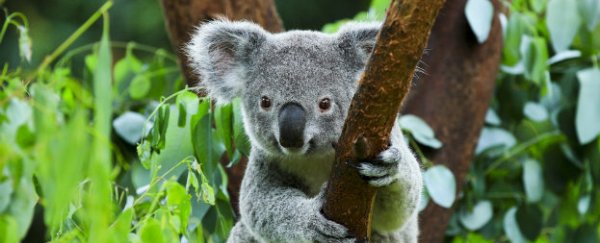Chlamydia kills half the koala population in Australia, but things may be looking up for our furry bush friends as scientists have successfully tested the first vaccine against this disease.
It is estimated that there are now fewer than 80,000 koalas left in the Australian wilderness. And - don't laugh - the main culprit behind declining numbers is the sexually transmitted disease, Chlamydia, which can cause blindness, infertility and even death.
But after five years of research, scientists have successfully trialled a Chlamydia vaccine that they hope will be able to protect the remaining Australian marsupials.
Australian scientists from the University of the Sunshine Coast gave 30 wild koalas the newly developed Chlamydia vaccine, and left 30 unvaccinated. Of the 60 koalas, some already had Chlamydia and were showing symptoms of the disease, such as eye infections and reproductive tract infections.
"In females, not only do they get reproductive tract disease which might lead to infertility, but also they get large cysts and they're quite painful," Peter Timms, microbiolist and lead researcher told Stephanie Small from ABC News. "As well as that of course, the ones that are infected in the eyes that become blind, it makes it difficult for them to feed."
The koalas were all fitted with radio collars to allow scientists to monitor them in their natural habitat.
The observations showed that in the vaccinated group, seven out of the eight koalas with eye infections showed an improvement. In the unvaccinated group, four of the six koalas suffering from eye infections, saw their conditions worsen.
"None of our vaccinated animals went from having an infection to getting actual disease - so blindness or reproductive tract cysts," Timms told Small from ABC News. "Whereas in the control group, three of them went from having an infection but then going on to get a disease."
"It's all very promising and it's not just that it's doing the right thing from an immune response point of view, but it's actually protecting a significant number of them out in the wild climbing around trees," Timms told AFP.
The team hope to continue the trial by vaccinating entire communities of koalas, starting with the thousands who are currently in sanctuaries.
In the mean time, lets hope that this vaccine leads to less awkward pre-coital conversations between koalas.
Source: ABC News
